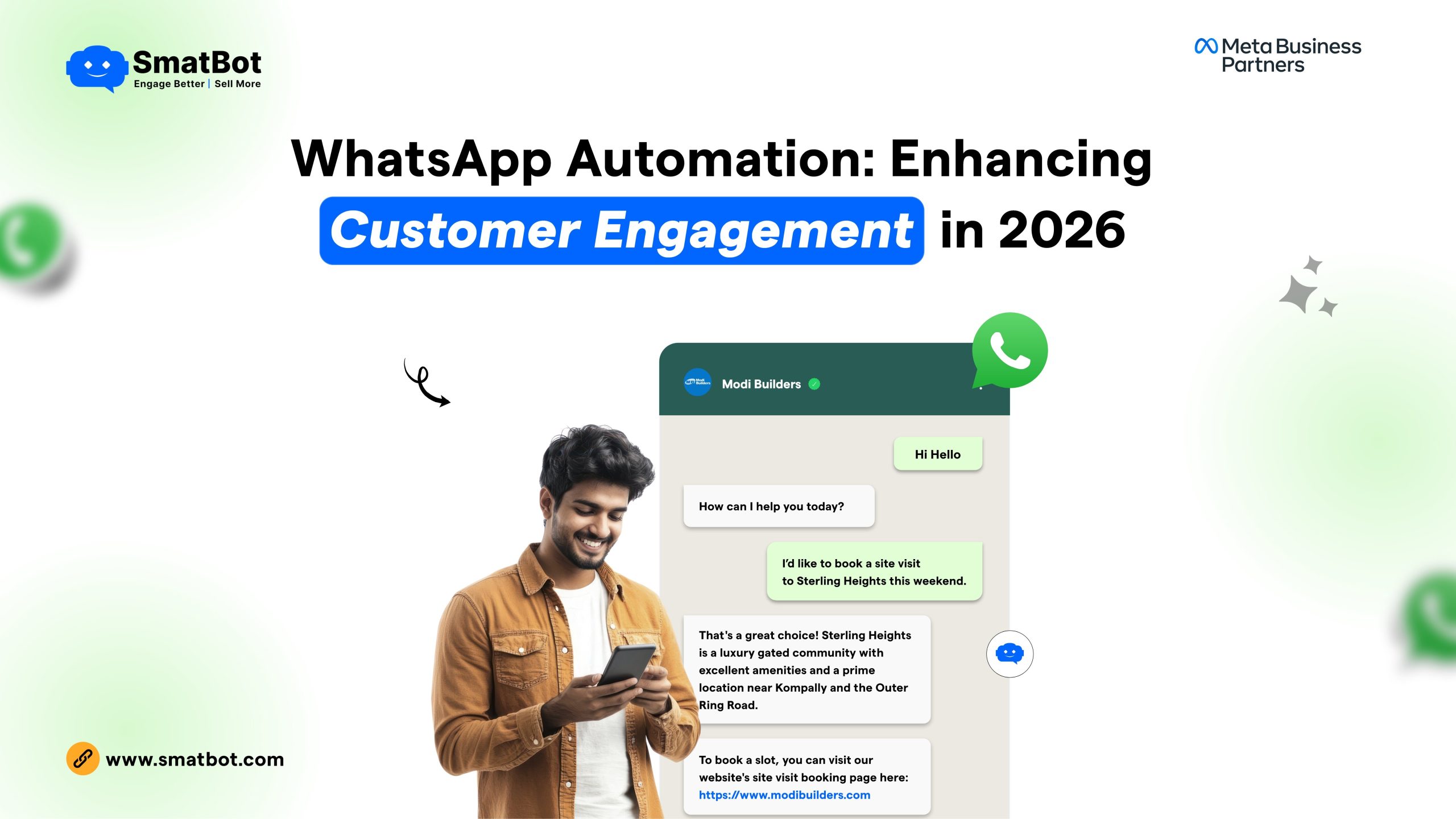WhatsApp privacy policy updates gave clear insight to WhatsApp users how it can use its user’s data in the long run with Facebook (parent company) or its partners. Even WhatsApp kept four statuses to convey its message to its users.
Besides that, Whatsapp gave its users a notice; to use Whatsapp platforms, they must follow the terms and conditions to maintain quality standards.
Moreover, they’ve scheduled the new policy update dates from February 8, 2021, to May 15, 2021, to continue on the WhatsApp platform.
In this article, we covered all possible questions that might come into WhatsApp user’s minds.
Here is the list of what we covered in this article-
- What are the Important WhatsApp Privacy Policy Changes?
- What’s Unchanged in WhatsApp Privacy Policy Updates?
- What are the Limitations on WhatsApp to Collect Data From Its Users?
- How WhatsApp Uses Its Users’ Information?
- WhatsApp Privacy Policy About Businesses Interacting with Users
- What About WhatsApp Privacy Policy Related to Payment Data?
- What are the Opportunities it Provides?
1. What are the Important WhatsApp Privacy Policy Changes?
WhatsApp is emerging as a digital store for businesses. With an approach to conversational commerce, WhatsApp, in its commerce policy, has introduced shopping features like carts, shop, and pay.
WhatsApp users can browse your brand’s catalog, select products, and request orders on message with shopping carts. In this way, there is no need for users to leave the chat and perform everything on a single platform.
This feature helps the brands keep an eye on the order requests, manage orders, and close deals. The users who are presently shopping on Instagram and Facebook can also use it on WhatsApp. This feature is not yet available to Indian Whatsapp users, and it’s slowly rolling out.
Brands can use the customer data by taking consent from their customers for enhancing customer experience. Brands generally use customer data to show relevant ads on Facebook and Instagram and for personalized customer experience.
There is no change in any WhatsApp business privacy policy about payments.
Facebook Hosting Services
Whatsapp business and business solution providers (BSPs) users have an option to use Facebook’s secure hosting services to host their numbers on Whatsapp.
Whatsapp business users, who choose to use Facebook’s hosting service, for them, Facebook can access messages only based on the instructions provided by businesses.
It means Facebook can’t use your user’s data directly. However, the brands who consent from their users to use their data can use data for advertising purposes on Facebook to show relevant ads.
Brands in their consent policies mention how they collect their user data, how they are using data, and other factors they concentrate on while using their customer data.
Even Whatsapp displays a message to the users whenever they interact with a brand if it uses a Facebook hosting service.
The purpose of displaying a message is to inform the users and be transparent about customer data end-to-end encryption of chat.
To know more about how Facebook uses the collected information, read Whatsapp’s Privacy policy here.
2. What’s Unchanged in WhatsApp Privacy Policy Updates?
Personal Chat Privacy of Users
Customer’s personal messages in groups or individuals’ privacy or security remain unchanged.
Facebook doesn’t have access to read or listen to your messages or calls. All messages and calls are end-to-end encrypted.
To clarify the same WhatsApp has shared the below infographic with its users.
User Experience
WhatsApp business API needs you to deliver a quality service to the users. For this, WhatsApp has provided clear instructions and limitations on what messages are permitted and what or not.
Permitted Messages:
Customer Support
Whenever a customer initiates a chat to seek any support from companies. For example, product purchase, product-related queries, support requests, return requests, and similar others.
Customer Notification
Companies want to improve customer support by providing notifications at every stage of their customer journey. For example, confirming orders, order status, sharing invoices, delivery confirmations, etc.;
Two-Step Verification
To add high-level security to Whatsapp Business API client.
Prohibited Messages:
Any promotional/marketing messages, for example, up-selling, or some phrases that sound promotional.
Sensitive content, for example, any abusive or threatening message in your HSMs.
Content subscriptions, such as-newsletter or subscription-type messaging.
Also, you need to consider these points while communicating with your customers:
- WhatsApp business users must interact only with customers who gave consent to this.
- You should respect the preference or request from customers to block, discontinue or unsubscribe to your services. Need to delete that customer’s complete details from your database if they requested to do so.
- Should not mislead or confuse customers with wrong and irrelevant information.
- WhatsApp business users must not ask customers to share sensitive details such as bank details, card details, OTP, etc.
WhatsApp is doing its best to deliver quality services to both individuals and brands from these WhatsApp privacy policies.
3. What are the Limitations on WhatsApp to Collect Data From Its Users?
WhatsApp generally collects its users’ information whenever its users install WhatsApp to deliver service, operate, improve, market, get insights, or customize.
The information WhatsApp collects depends on the type of service users want to use.
For example- if you want to use location service, you need to allow WhatsApp to access your location; you can’t use that feature without permitting it.
Let’s discuss here some points that clear you what informations WhatsApp can collect from you:
- WhatsApp can collect information about your device such as- signal strength, browser details, mobile network, contact information (mobile number, ISP, or mobile operator), languages, time zone, identifiers(associated with the same device or account), which was not present in the previous policy.
- Mobile number is a mandatory element that WhatsApp collects from every user to create an account on WhatsApp.
- WhatsApp will store your message (end-to-end encryption form) temporarily on their servers until the message gets delivered (for 0-30 days if not delivered for any reason). After that, it deletes the message from its server. The message gets stored in your devices, either its text or media files.
- Have information about your payments when you do transactions like-amount, payment method, shipping details, etc.
- WhatsApp collects your email id and contact number whenever you reach WhatsApp to resolve any customer support queries.
- Collects usage and login information such as- when you’re active or offline, what features you make use of, last seen, profile picture, status, contacts or groups name, and about information.
- Uses cookies when you use a desktop or laptop to provide customized service and understand your needs.
- Stores your information when others provide your information to WhatsApp.
- Can access interaction details between you and the business.
4. How Whatsapp Uses Its Users’ Information?
Whatsapp uses your information to improve its service, which includes- customer support, customized services, and connecting WhatsApp services with Facebook products that you use. Also, to interact with users when they approach WhatsApp.
WhatsApp uses the information to verify accounts and activity, prevent harmful conduct, bad experiences, and spam.
To market WhatsApp products or services, to notify essential updates.
It acts as a platform to interact with brands and customers to use services such as shopping, checking order status, transactions, notifications, and updates.
5. WhatsApp Privacy Policy About Businesses Interacting with Users
For businesses to initiate a chat with customers first, they need to take the opt-in permission from customers by clearly defining how businesses can use users’ data and to whom they can share data.
After getting consent from customers, businesses can send messages like notifications(message templates approved by Whatsapp).
If the customer initiates a chat for any assistance, you can send a message up to 24 hours after the last conversation sent by that person.
After 24 hours, you can send a message to that person only by getting message template approval from WhatsApp and chargeable.
To utilize a 24-hour window, you can use automation for a reply using any escalation paths such as-
- Phone number
- Web support
- In-chat human agent transfer
- In-store visits (ex: visit a retail store, bank branch)
- Support form
Businesses don’t have permission to ask for any sensitive information from customers, such as their bank details, credit card numbers, OTP, or others.
Businesses should not share customer information with other WhatsApp users or with any third-parties.
6. What About WhatsApp Privacy Policy Related to Payment Data?
Whatsapp payments have started in India after waiting for two years. If you’re using WhatsApp payment services, then WhatsApp can access some additional information from you such as- payment account, transaction information, amount, and other details. However, Whatsapp payments in India have their privacy policy.
7. What are the Opportunities it Provides?
With WhatsApp privacy-policies release, WhatsApp aims to deliver a quality service to its users, either it’s a brand or individual. It is offering new opportunities for business-customer interaction.
Under these WhatsApp privacy policies, businesses can:
- Host number directly on Facebook rather than third-parties that reduces the time for on-boarding.
- Get access to what type of product customers purchased and other details to customize products, personalize ads, increase customer satisfaction and let customers discover your brand on Facebook and Instagram.
- Enhance real-time engagement with customers.
- Deploy conversational commerce to let customers shop directly from WhatsApp.
- Can present products creatively using rich media content, emojis, GIFs, bolded/italicized content, catalogs, etc.
TakeAway
Whatsapp privacy policy has not made any changes to the private chats and user experience.
Whatsapp aims to deliver quality service to its users with these updates and ease the interaction between brands and customers.
Regarding WhatsApp commerce policies, brands can access their customer data with permission to show relevant ads to customers on Facebook and Instagram.
If you still have any doubts, you can refer to WhatsApp privacy policies or contact our SmatBot team. We are glad to assist you.




